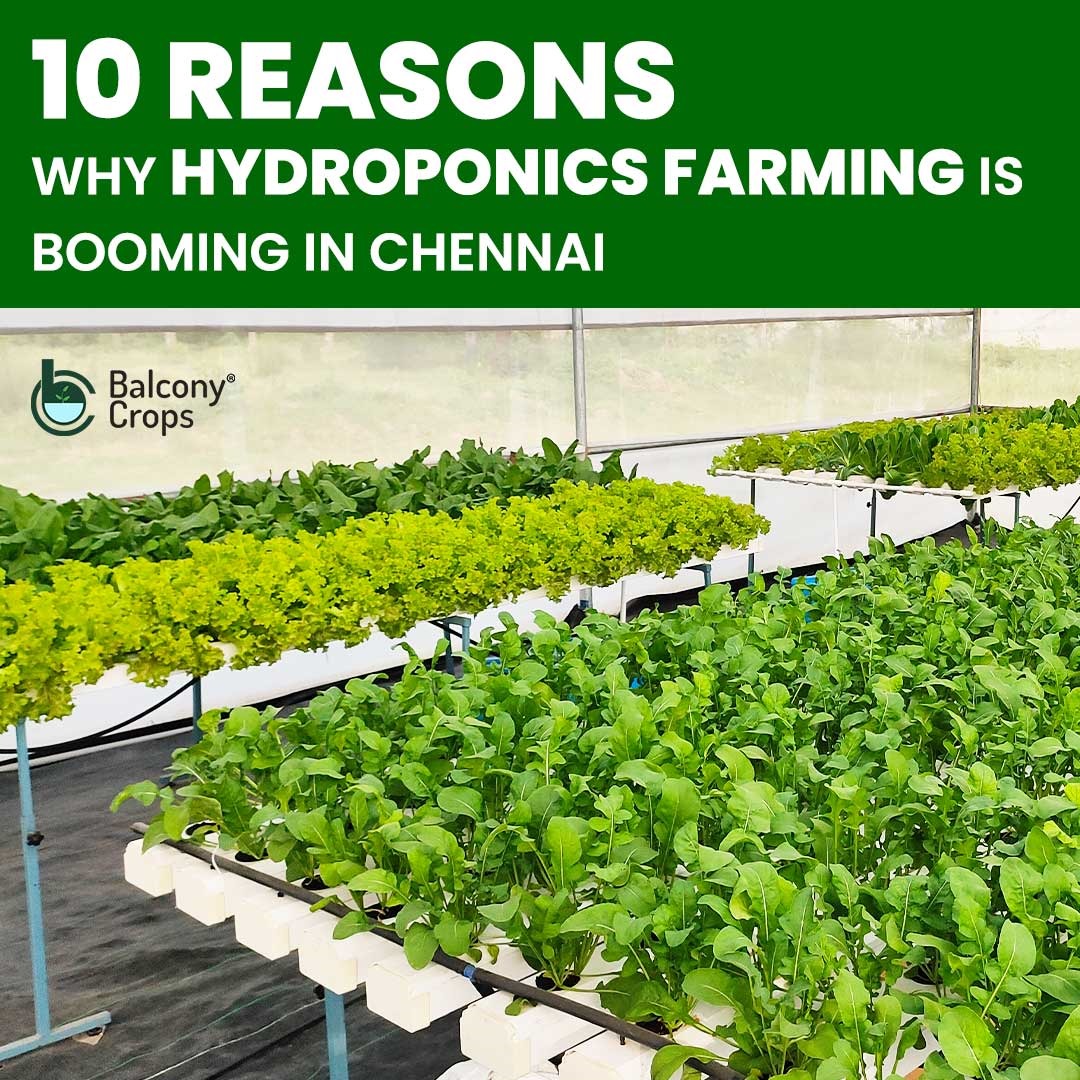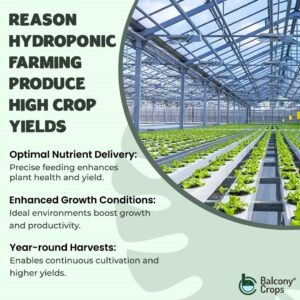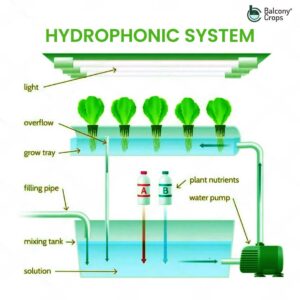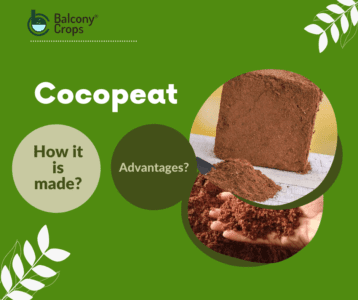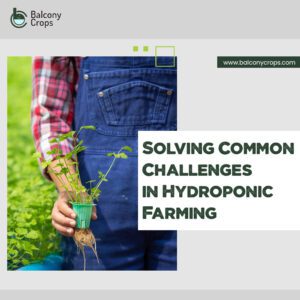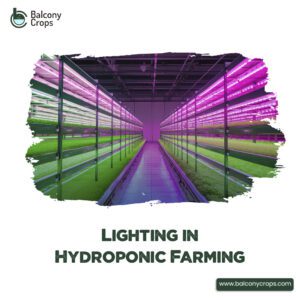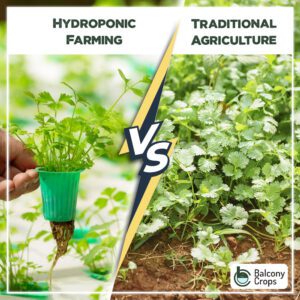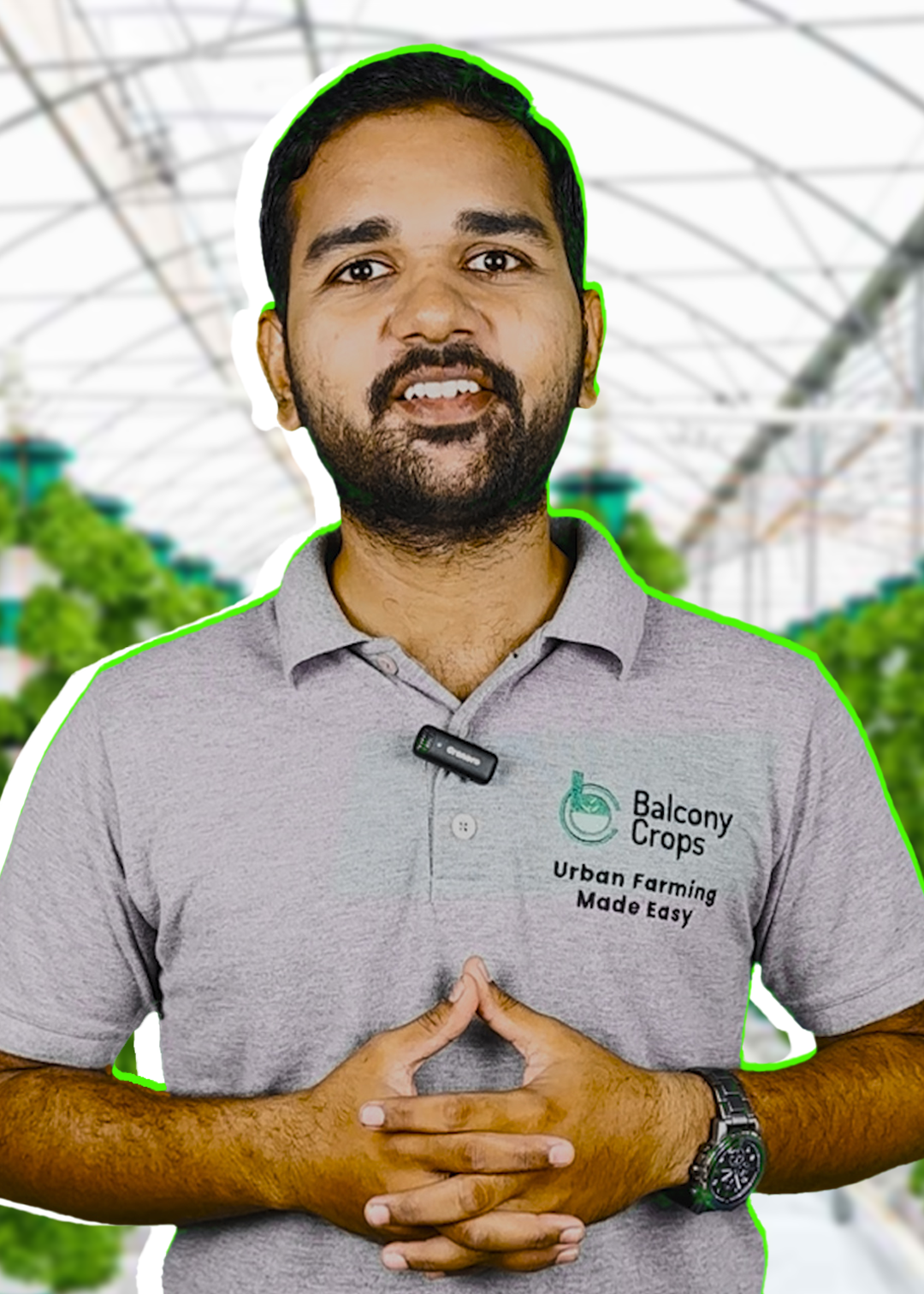Table of Contents
In the bustling city of Chennai, where space is a premium commodity and environmental challenges loom large, hydroponics farming has emerged as a beacon of hope for urban agriculture enthusiasts. With its innovative approach to growing crops without soil and utilizing water efficiently, hydroponics has captured the attention of Chennai’s residents and entrepreneurs alike. Here are 10 key reasons why hydroponics farming is experiencing a remarkable boom in Chennai.
Rapid Urbanization:
In Chennai, rapid urbanization poses significant challenges for traditional agriculture. Let’s explore how hydroponics addresses these issues.
- Land Scarcity and Urban Pressure:
Chennai’s expanding urban footprint leaves little room for conventional farming. Hydroponics offers a solution by utilizing vertical space, allowing farmers to grow crops in compact urban environments without relying on vast expanses of land. - Vertical Farming Solutions:
Hydroponic systems are well-suited for vertical farming, making efficient use of space in densely populated areas. By stacking layers of growing trays or utilizing vertical towers, hydroponic farms maximize yield per square foot, catering to the needs of urban populations. - Sustainable Urban Agriculture Initiatives:
Amidst concerns over food security and environmental sustainability, Chennai is witnessing a surge in urban agriculture initiatives. Hydroponics plays a crucial role in these efforts, enabling residents to cultivate fresh produce locally, reducing reliance on long-distance transportation and minimizing carbon emissions.
Water Conservation:
Hydroponics excels in water conservation, crucial for water-stressed regions like Chennai. Here’s how hydroponic farming tackles water scarcity.
- Efficient Water Usage:
Traditional agriculture often wastes water through runoff and evaporation. Hydroponic systems, however, utilize water efficiently by delivering nutrients directly to plant roots, minimizing wastage and maximizing uptake.
- Recirculating Systems:
Hydroponic setups commonly incorporate recirculating systems, where water is continuously recycled within the system. This closed-loop approach minimizes water consumption, making hydroponics an environmentally sustainable choice. - Mitigating Water Scarcity:
In Chennai, where water scarcity is a pressing issue, hydroponics offers a lifeline. By reducing water usage compared to soil-based farming, hydroponics helps alleviate pressure on dwindling water resources, ensuring sustainable agricultural practices for the future
Limited Arable Land:
Limited availability of arable land in Chennai necessitates innovative farming solutions. Hydroponics shines in this regard.
- Utilizing Limited Space:
Chennai’s burgeoning population leaves little land for traditional farming. Hydroponic systems, with their space-saving design, allow cultivation in compact areas such as rooftops, balconies, and even indoors, maximizing land utilization.
- Adaptability to Urban Environments:
Hydroponics’ versatility makes it ideal for urban farming. Whether it’s a small apartment balcony or a commercial rooftop, hydroponic setups can be tailored to fit various urban environments, enabling residents to grow fresh produce in the heart of the city. - Promoting Land Conservation:
By minimizing the need for vast expanses of farmland, hydroponics helps conserve Chennai’s precious land resources. This not only addresses urban sprawl but also safeguards natural habitats and promotes biodiversity conservation.
Climate Control :
Hydroponic farming offers precise climate control, crucial for Chennai’s extreme weather conditions.
- Controlled Environment:
Hydroponic setups allow farmers to create a controlled environment, shielding crops from Chennai’s scorching heat and heavy rains. This controlled atmosphere fosters optimal growth conditions, resulting in higher yields and better crop quality. - Temperature Regulation:
In a tropical climate like Chennai’s, maintaining ideal temperatures for plant growth can be challenging. Hydroponic systems enable precise temperature regulation, ensuring that plants thrive regardless of external weather fluctuations. - Humidity Management:
Excessive humidity can lead to fungal diseases and crop failures. Hydroponic farms employ advanced humidity management techniques, maintaining optimal moisture levels to prevent such issues and promote healthy plant growth
High Crop Yields :
Hydroponic farming are boasts impressive crop yields, thanks to several factors.
- Optimal Nutrient Delivery:
Hydroponic systems deliver nutrients directly to plant roots, ensuring they receive precisely what they need for vigorous growth. This targeted approach eliminates nutrient loss to soil and promotes efficient nutrient absorption, resulting in healthier, more productive crops.
- Enhanced Growth Conditions:
Hydroponic setups offer unparalleled control over growing conditions, including temperature, humidity, and light exposure. By optimizing these factors, hydroponic farmers create an ideal environment for plants to thrive, leading to accelerated growth and higher yields - Year-round Harvests:
Unlike traditional farming, which is often seasonal, hydroponics allows for year-round cultivation. With proper planning and management, hydroponic farmers in Chennai can enjoy consistent harvests regardless of external weather conditions, ensuring a steady supply of fresh produce to meet market demand.
Reduced Pest and Disease Pressure:
- Soil-borne Pest Prevention:
By eliminating soil from the equation, hydroponic systems minimize the risk of soil-borne pests and pathogens, reducing the need for chemical pesticides. This proactive approach to pest management ensures healthier crops and minimizes environmental impact. - Controlled Environment for Disease Management:
Hydroponic setups provide a controlled environment that helps prevent the spread of diseases among crops. With precise control over factors like humidity and temperature, hydroponic farmers can create conditions unfavorable for pathogens, mitigating disease outbreaks. - Integrated Pest Management (IPM) Strategies
Hydroponic farms in Chennai often employ integrated pest management (IPM) strategies, combining biological, cultural, and chemical control methods to keep pests in check while minimizing reliance on synthetic pesticides. This holistic approach promotes sustainable pest management practices and protects both crops and the environment.
Efficient Resource Utilization :
Hydroponic farming excels in resource efficiency, utilizing resources effectively.
- Water Efficiency:
Hydroponic systems use water more efficiently than traditional soil-based farming, with some estimates suggesting up to 90% water savings. Through techniques like recirculating systems and drip irrigation, hydroponic farmers in Chennai minimize water wastage and optimize water usage for maximum crop growth.
- Nutrient Recycling:
Hydroponic setups facilitate nutrient recycling, where unused nutrients are captured and reused within the system. This closed-loop approach minimizes nutrient runoff and ensures that plants receive the optimal balance of nutrients, leading to healthier crops and reduced environmental impact. - Energy Conservation:
While hydroponic setups may require energy for lighting and climate control, advancements in energy-efficient technologies have made it possible to minimize energy consumption. In Chennai, hydroponic farms leverage energy-saving strategies such as LED lighting and renewable energy sources to reduce their carbon footprint and operating costs.
Year-round Production:
Hydroponic farming enables year-round production, ensuring a steady supply of fresh produce:
- Climate-Independent Growing:
Unlike traditional farming, which is often limited by seasonal changes and weather conditions, hydroponic systems provide a controlled environment where crops can thrive regardless of external factors like temperature and humidity. This climate independence allows for consistent production throughout the year, reducing reliance on seasonal fluctuations.
- Continuous Harvesting:
With hydroponics, farmers can implement staggered planting schedules and harvest crops at different stages of growth, enabling continuous harvesting. This maximizes productivity and ensures a constant supply of fresh, high-quality produce to meet market demand year-round. - Crop Diversification:
Hydroponic farming facilitates crop diversification by allowing farmers to grow a wide variety of crops simultaneously. This diversity not only enhances food security but also enables farmers to cater to diverse consumer preferences, expanding market opportunities and increasing resilience to market fluctuations.
Growing Demand for Fresh Produce:
Chennai’s growing population is driving demand for fresh produce, fueling the expansion of hydroponic farming:
- Health-conscious Consumer Trends:
An increasing number of Chennai residents are prioritizing health and wellness, leading to a surge in demand for fresh, nutritious produce. Hydroponically grown fruits and vegetables offer higher nutrient content and superior taste, catering to the preferences of health-conscious consumers. - Preference for Locally Sourced Food:
Consumers in Chennai are increasingly seeking locally sourced food due to concerns about food safety, environmental sustainability, and supporting local farmers. Hydroponic farming enables the production of fresh, locally grown produce year-round, meeting the demand for locally sourced food and reducing reliance on imports. - Rising Awareness of Food Miles:
Awareness of the environmental impact of food transportation, known as food miles, is growing among Chennai’s residents. Hydroponic farming minimizes food miles by producing crops closer to urban centers, reducing carbon emissions associated with long-distance transportation and supporting sustainable food systems.
Technology Advancements :
Hydroponic farming benefits from advancements in technology, driving innovation and efficiency in Chennai
- Automation and Monitoring Systems:
Modern hydroponic setups incorporate automation and monitoring systems that regulate environmental parameters such as temperature, humidity, and nutrient levels. These systems optimize crop growth, minimize resource wastage, and streamline farm management tasks, enhancing productivity and profitability
- Precision Agriculture Techniques:
Hydroponic farmers in Chennai leverage precision agriculture techniques, including data-driven decision-making, remote sensing, and predictive analytics. These tools enable farmers to monitor crop health, optimize resource allocation, and maximize yields, ensuring sustainable and profitable farming practices.
- Research and Development Initiatives:
The hydroponic industry in Chennai benefits from ongoing research and development initiatives aimed at improving crop varieties, optimizing nutrient formulations, and enhancing system efficiency. Collaboration between researchers, agricultural experts, and industry stakeholders drives innovation and fosters continuous improvement in hydroponic farming practices.
The booming trend of hydroponics farming in Chennai is fueled by a combination of factors, including rapid urbanization, water conservation, and limited arable land. Hydroponic systems offer numerous advantages, such as high crop yields, reduced pest and disease pressure, and efficient resource utilization, making them an ideal solution for urban agriculture in Chennai’s densely populated landscape. Additionally, advancements in technology continue to drive innovation in hydroponic farming, further enhancing its viability and sustainability.
With Balconycrops offering affordable hydroponic farming consultation services and providing hydroponic farming sets, now is the perfect opportunity to start your hydroponics venture. Whether you’re a beginner or an experienced farmer, our comprehensive services cater to all levels of expertise. Take the first step towards sustainable urban agriculture by contacting BalconyCrops today.
Click here to get started and explore our range of hydroponic farming solutions.



